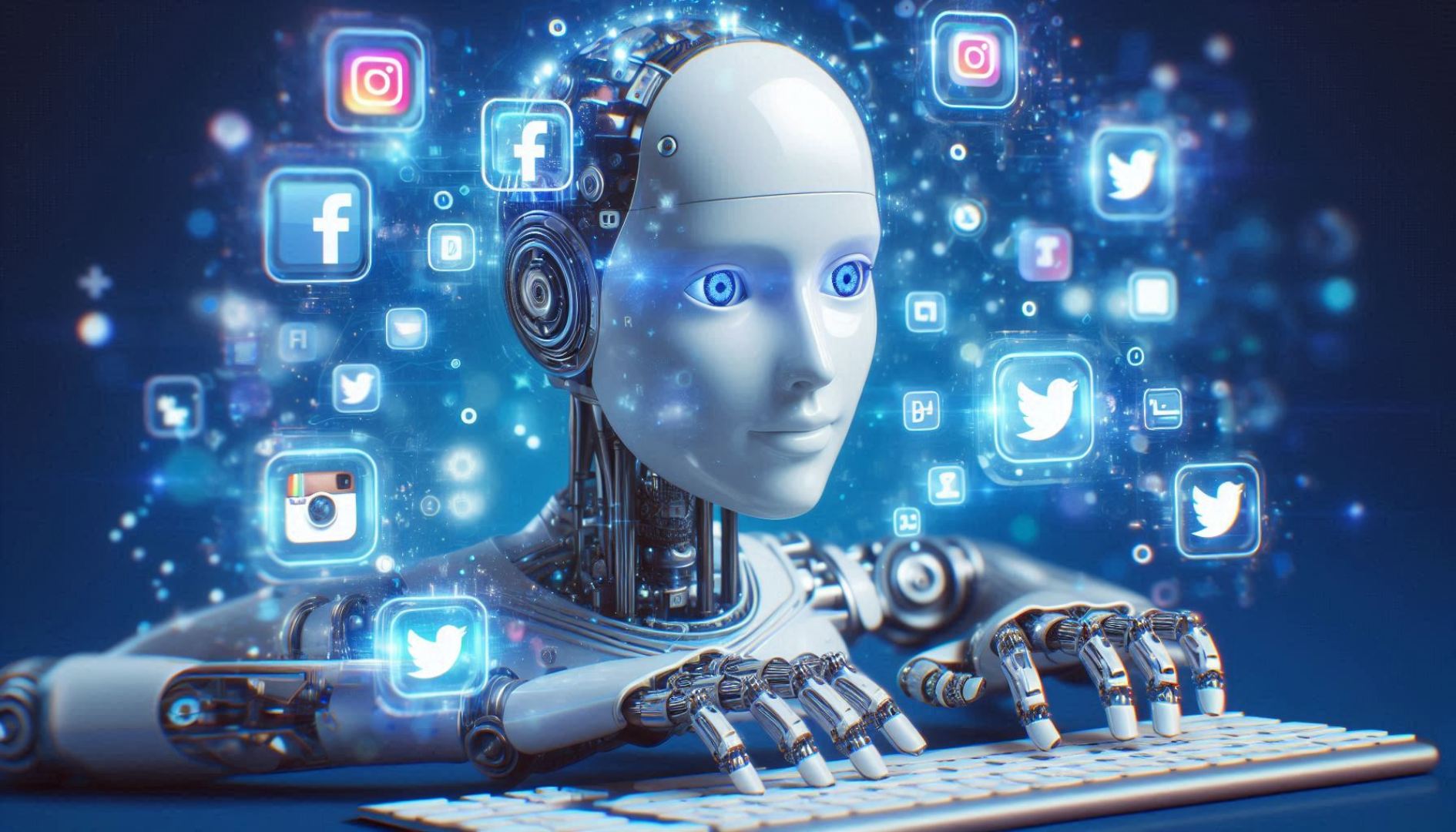AI in Social Media Marketing
In the realm of social media marketing, artificial intelligence (AI) is reshaping how businesses engage with their audience, optimize campaigns, and drive results. This beginner’s guide explores the transformative impact of AI on social media marketing strategies and introduces essential tools that leverage AI to enhance performance.
Introduction
Artificial intelligence, or AI, enables machines to learn from data, make decisions, and perform tasks that traditionally require human intelligence. In social media marketing, AI empowers businesses to analyze vast amounts of data quickly, automate repetitive tasks, and personalize interactions with users at scale.
Enhancing Audience Targeting with AI
Targeting the right audience is crucial for effective social media marketing. AI algorithms analyze user behavior, demographics, interests, and engagement patterns to segment audiences more accurately than ever before. By leveraging AI-powered insights, marketers can tailor content and ad campaigns to resonate with specific audience segments, improving engagement and conversion rates.
AI-Driven Content Creation and Curation
Content is king in social media marketing, and AI enhances content creation and curation processes significantly. Natural language processing (NLP) algorithms can generate compelling captions, headlines, and even articles based on trending topics and user preferences. AI-powered tools also curate content from across the web that is relevant to your audience, keeping your social media feeds fresh and engaging.
Real-Time Engagement and Customer Service
AI-powered chatbots and virtual assistants are revolutionizing customer service on social media platforms. These intelligent bots can respond to customer inquiries, provide product recommendations, and resolve issues promptly and accurately. By offering 24/7 support and personalized interactions, AI-driven customer service enhances user satisfaction and loyalty, ultimately boosting brand reputation and driving sales.
Social Listening and Sentiment Analysis
Understanding how your audience perceives your brand is critical for effective social media marketing. AI tools perform sentiment analysis by analyzing social media conversations in real-time. They can identify trends, monitor brand mentions, and gauge audience sentiment toward specific topics or campaigns. This valuable feedback allows marketers to adapt their strategies quickly and respond to consumer preferences and concerns proactively.
Performance Optimization and Predictive Analytics
AI excels in optimizing social media advertising campaigns for maximum ROI. Machine learning algorithms analyze campaign performance metrics, identify patterns, and predict future outcomes. AI can automatically adjust ad bids, targeting parameters, and content strategies in real time to optimize performance and achieve marketing objectives efficiently. By leveraging predictive analytics, marketers can stay ahead of trends and capitalize on opportunities before competitors.
Conclusion: Harnessing AI for Social Media Marketing Success
In conclusion, AI-powered tools and strategies are transforming social media marketing by enabling more personalized, efficient, and data-driven approaches. Whether you’re a small business or a large corporation, integrating AI into your social media marketing efforts can unlock new opportunities for growth, engagement, and brand visibility. As AI technology continues to evolve, staying informed about the latest advancements and best practices will be crucial for maintaining a competitive edge in the ever-changing digital landscape.
Embracing AI in social media marketing isn’t just about adopting new technologies—it’s about leveraging intelligent tools to understand your audience better, deliver more relevant content, and optimize your campaigns for superior results. By incorporating AI-driven strategies into your social media marketing toolkit, you can navigate the complexities of social media platforms with confidence and achieve meaningful business outcomes in today’s digital age.

